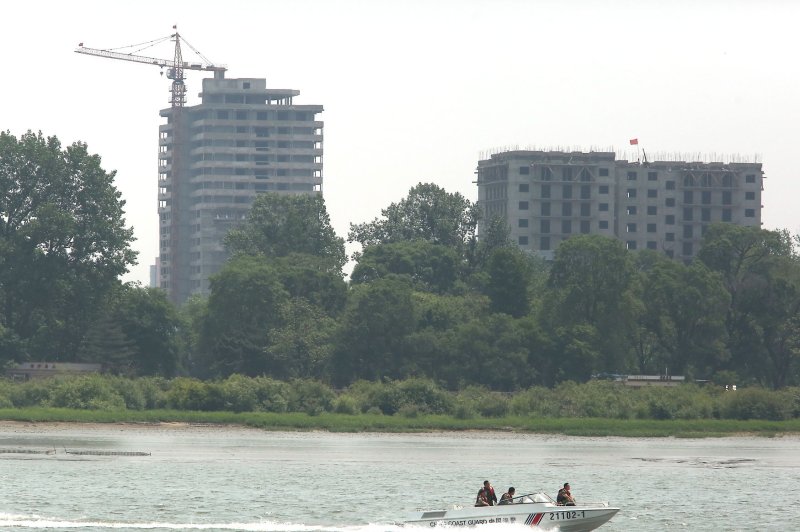Tourists sightsee in a speed boat past new building projects in the North Korean city Sinuiju, across the Yalu River from Dandong, China's largest border city with North Korea. South of Sinuiju in Pyongyang, the number of taxis is growing. Photo by Stephen Shaver/UPI |
License Photo
SEOUL, Dec. 30 (UPI) -- There are now more taxis in Pyongyang – the capital of North Korea. But given the cost of a cab ride, they are largely reserved for the exclusive use of top officials and a newly emerging class of wealthy North Koreans.
A source in North Korea who spoke on the condition of anonymity told Radio Free Asia Wednesday the taxis also only accept U.S. dollars and China's yuan.
The source said the taxis charge about 50 cents per kilometer – which is fairly expensive for many North Koreans, and beyond the budget of most people in the country, one of the world's most impoverished.
Taxi driving as an occupation, however, has become popular, the source said.
Bribery is common among taxi drivers, and drivers frequently offer bribes at checkpoints in order to dispense with regulatory procedures that curb car noise. After a while, the source said, the guards recognize the preferred drivers and automatically raise the toll bar at the checkpoints.
There are five taxi operators in Pyongyang, according to Park Chan-mo, the Korean American chancellor of Pyongyang University of Science and Technology, who also told South Korea press in January that a cash card can be used to complete transactions.
Jiji Press had reported in 2014 the North Korean authorities only allow taxis with a license plate ending in an odd number to operate on dates ending in an odd number – and vice versa.
There were about 1,000 cabs in operation in 2014, according to Japan press.















